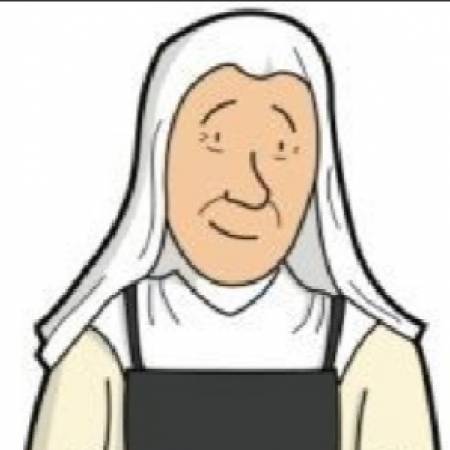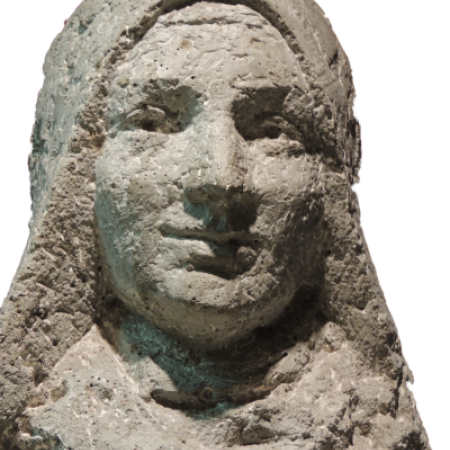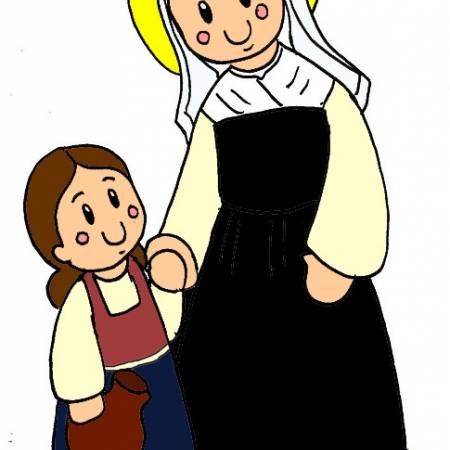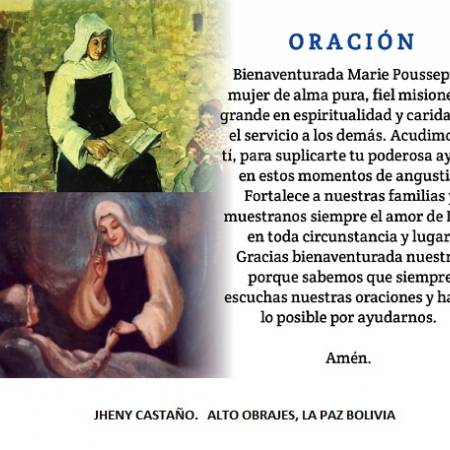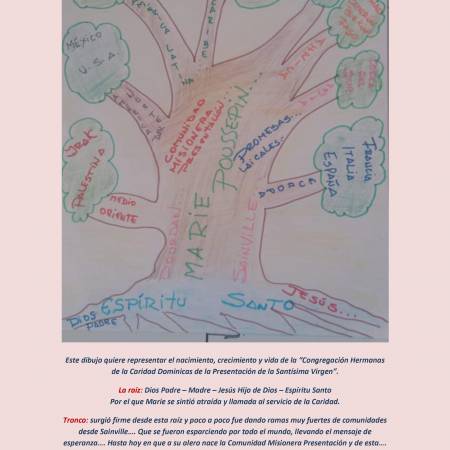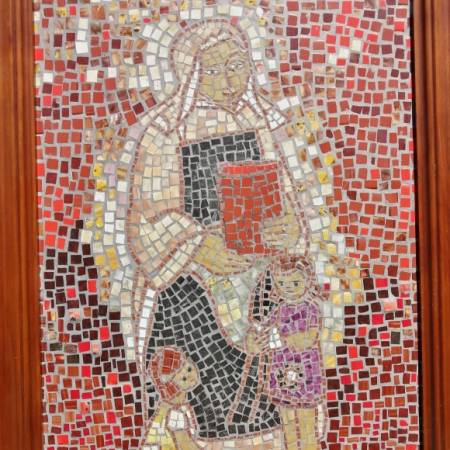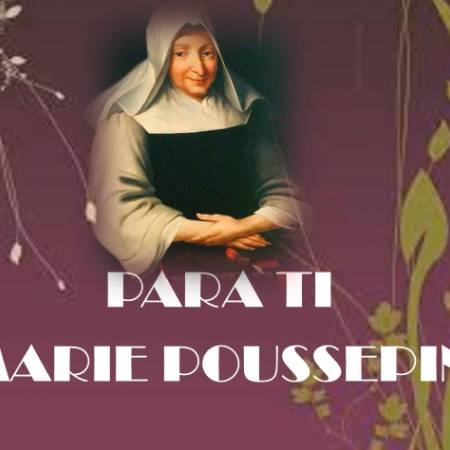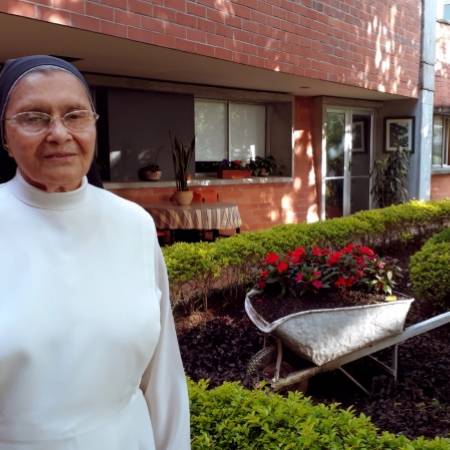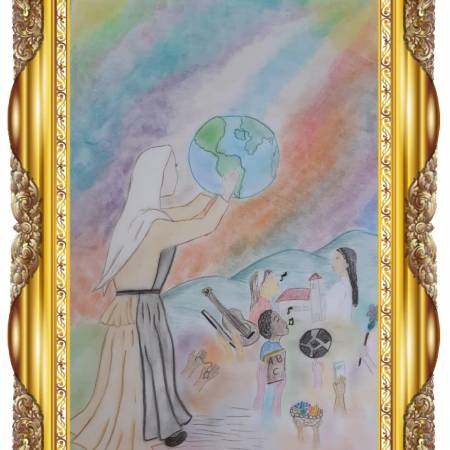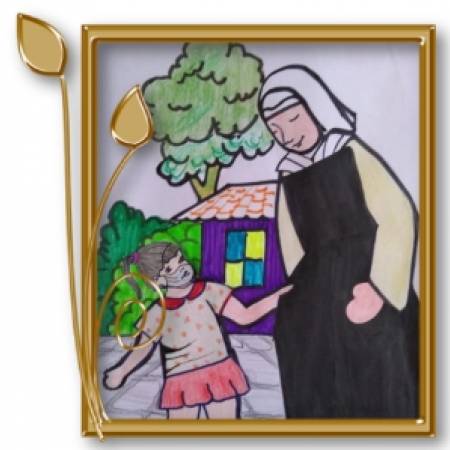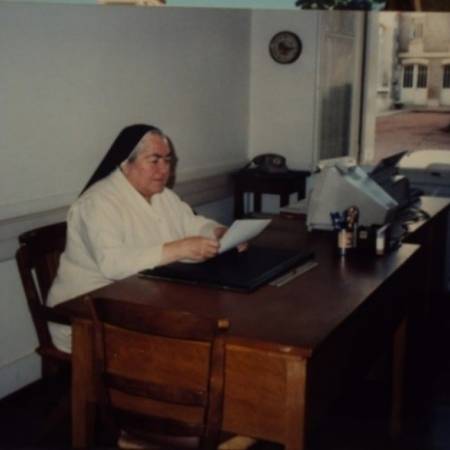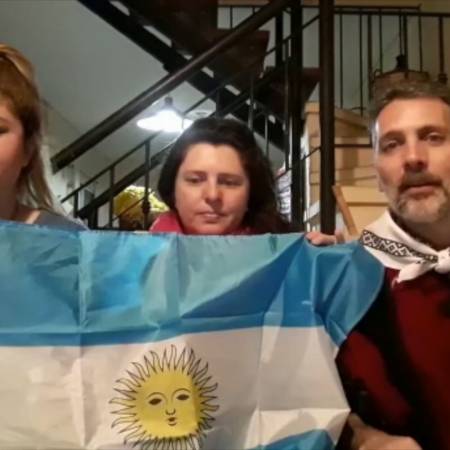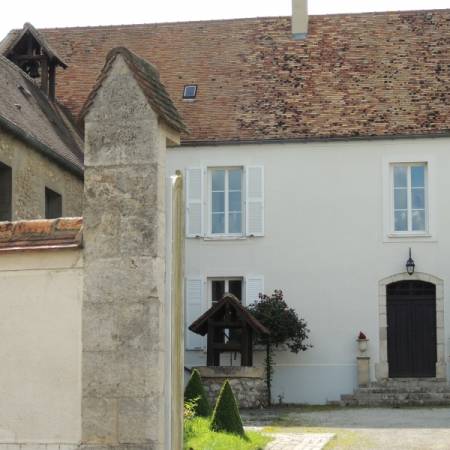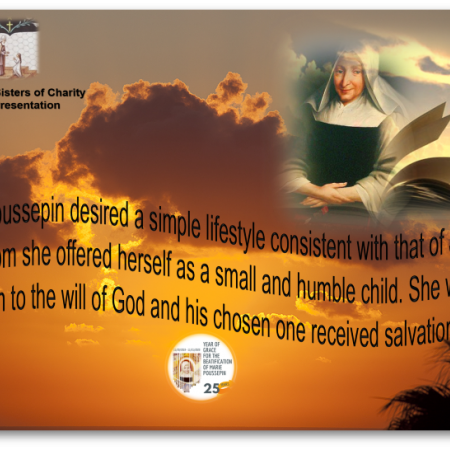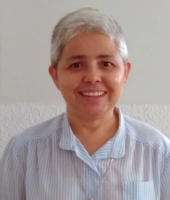DOWNLOAD IN PDF:
By SR. NÍCIDA AMPARO DÍAZ LEAL* (VENEZUELA).- Re-reading of the Spirituality and Charism of Marie Poussepin today. In the spirituality of Marie Poussepin, it is important to emphasize today a relevant trace. She was a woman who walked according to the rhythm of the Spirit. We know that spirituality is nothing other than ¨…the art of paying attention to the Holy Spirit¨ . To live spirituality from this point of view is to become a gift to others. This is the spirituality of Marie Poussepin, she made herself a gift to others, and “went about doing good” (Acts 10:38).
In Marie Poussepin, it is a spirituality of work that moves her to do good and search for God’s will continuously. This affirmation: “She saw what was right in the eyes of God and did it”, reveals a woman of deep and great fidelity to the will of God. To see what is good, what is right in the eyes of God and to fulfill it, is to go beyond appearances to discover conditions and events, to incarnate what has been discovered converting the Word to action.
For Marie Poussepin everything that comes from God is good, improves and converts in a triple movement: towards God, towards ourselves and towards others, encompassing ecology; this is the dynamic of social justice, nonviolence and peace, namely, a continuous movement of conversion that implies relationships that are just, fraternal and inclusive; relationships that refine the person and at the same time improve the environment where we share life and mission; our common home.
As Marie Poussepin lived at the rhythm of the Spirit of God and sought the Will of God continually, her life moved at the pace of social justice, nonviolence and peace. In her the Beatitudes of justice, meekness and peace find their fulfillment (Mt 5: 4,6,9,10).
Social justice and Charity
Social justice, in the spirituality of Marie Poussepin, has its foundation in the Charity inspired by Jesus, which is totally unconditional, “mutual charity which must be found among persons in community must be based on that which Jesus Christ had for men…”¨[1].
Social justice leads us to recognize a person in his/her fundamental dignity, as children of the same Father, “God has chosen us to be his children with the same origin and destiny, with the same dignity, with the same rights and duties lived in the supreme commandment of love… The love of mercy for all those who see their life violated in any of its dimensions”[2].
Observing Marie Poussepin from this perspective of social justice, is a re-reading of the “Social Apostle of Charity”. In the face of human misery, sickness and ignorance, she does not hesitate to give her life to God in order to serve him in her brothers and sisters who are the poorest. There is no dualism in her: “Only one contemplative aim, love of God or love of others moved her to speak to God or of God with a charity full of mercy and compassion ¨[3].
Marie Poussepin nurtured the principles of honesty, dedication, love of work, commitment to the parish, social responsibility that she had received during her childhood and youth in the degree of her contemplative experience of God and the hard historical reality that she had to live. Being with Jesus shapes a contemplative approach to history which knows how to see and hear the presence of the Spirit everywhere and, in a special way, how to discern the Spirit’s presence in order to live in time as God’s time.¨[4].
She is an ¨Apostle of Charity¨ because her goal is to proclaim the Gospel with a commitment to social justice. This is how we meet her in Dourdan in 1685, reforming textile work, replacing hand weaving with machinery looms and introducing apprenticeship contracts with social commitments; she abolishes the apprenticeship fee, which is expensive for their families; she ensures formation for the work and thus contributes to the economic prosperity of the city, favoring industrial progress and the promotion of young people through education and work.
In Sainville, Marie Poussepin, with her total dedication to the poorest, had a house built where she welcomed young girls from the countryside to teach them to read, write and live in a Christian way. With the aim of choosing teachers for the countryside where they are requested… Marie Poussepin has taken with her young country girls without either shelter or resources to raise them in the fear of God, and to teach them to work and earn a living.
“Our faith in Christ, who became poor, and was always close to the poor and the outcast, is the basis of our concern for the integral development of society’s most neglected members.”[5].
Her creative, daring and organized charity made it possible to promote work, to find ways that are accessible for everyone to earn a decent living, without being a burden to anyone. This service of charity is also participation in the efforts to modify social structures or to create others that allow the integral promotion of women and men.
That is why our spirituality, like that of Marie Poussepin, must be found in charity, because it is the soul, the motivation for personal and social promotion… effective charity that leads one to choose the social, cultural, economic and political means that lead to the liberation of the poor¨[6].
“The Church cannot and must not remain on the sidelines in the struggle for justice… The Church’s thought is above all positive and purposeful, it guides a transforming action, and in that sense it does not cease to be a sign of hope that springs from the loving heart of Jesus Christ… guided by the Gospel of mercy and love for man, it hears the cry for justice and wants to respond to it with all its strength¨[7].
Marie Poussepin, witness to nonviolence and peace
The Spirit enabled her to remain in the presence of God. Therefore, and from her spiritual experience, she invites the sisters in her community to live this presence of the divine ¨Keep the presence of God in all your actions¨[8].
Those who live in the presence of God and keep it in all their actions cannot but witness nonviolence in the face of a broken world, when violence is imposed as a way of life in order to survive and excel at the cost of human dignity. “that violence is evil, that violence is unacceptable as a solution to problems, that violence is unworthy of man. Violence is a lie, for it goes against the truth of our faith, the truth of our humanity. Violence destroys what it claims to defend: the dignity, the life, the freedom of human beings”. [9]
Violence disregards God and insults him, because its dynamic of relationship is dehumanization and therefore destruction of what is most sacred to God, the human persons, created in his image and likeness and blessed by Him to accompany his fellow human beings (Gen 1: 27 – 28; 2: 18).
From this notion, let us look at the invitation of Marie Poussepin to create fraternal relationships marked with charity, because it is the only way to confront the relations generated by violence that, “eliminate the charity, smother the original spirit, finally they arrive at destroying it irremediably… these relations are a perpetual source of envy, doubt, defiance, and enmity … lead to divisions, to the detriment of our neighbor.”¨[10]
Violence blinds the heart and numbs the feelings; it makes us unable to hear the question that God asks us at the face of the hardest realities of life. Where is your brother? (Gen 4:9).
Marie Poussepin was a witness to an era where violence was the daily bread in all its expressions; she presents to welcome true charity, which did her much good in making possible the work that Providence had entrusted to her. Moved by the Spirit, she recognized what move had she to make at every moment: she gave her apprentices with a job; she helped the young women to get out of the hardest conditions of life; and she gave the Church a community, with the newness of the moment so that she could make the exercise of Charity prolong in the world.
The general rules for the conduct of the sisters of the community of Sainville, summarize the charity that accompanied Marie Poussepin, making her a witness of nonviolence and peace: “Be gentle in conversation, simple in speech... Be full of charity. Be filled with tenderness toward the children that you teach… Be gentle without being weak, firm without being harsh, serious without being haughty. Reprimand without anger… Act with much prudence and patience, with great kindness and modesty... [11].
Nonviolence, a path to Peace
“An adequate understanding of spirituality consists in filling out what we mean by peace, which is much more than the absence of war. Inner peace is closely related to care for ecology and for the common good because, lived out authentically, it is reflected in a balanced lifestyle together with a capacity for wonder which takes us to a deeper understanding of life.¨[12].
Marie Poussepin was a woman of peace. Blessed are the peacemakers, for they will be called children of God (Mt 5:9); she was a child of God, who lived abandoned herself to the Providence, working in the meantime, everything she could and asking insistently for capacities that she still lack (Cf. General Rules). She did not despair; full of trust in God ¨she fails no effort to give her community the strength and spirit that can keep it alive through time…she trusts enough in God’s Providence to believe that her daughters will not lack at all the necessary help, as long as they are faithful to her rules and assiduous in work¨[13]. She knew that the first thing was to seek the Kingdom of God and its justice: ¨She has taken with her young country girls without shelter and without resources, to be useful to the poor sick people of the countryside to offer comfort, bleed their wounds and give remedies, and to teach the young country girls, catechism, to read, to write and to work¨[14], the rest would be given (Cf. Mt 6:33).
Today we reread Marie Poussepin like this: A balanced lifestyle, a deep inner peace and promotion of social justice and nonviolence; all of this is the fruit of a permanent spirituality that today continues to inspire her daughters, as well as good-hearted people who support and sustain this Work of Providence with their testimony of life.
Guidelines for our personal and community reflection
- As we read and reflect this theme we will share:
What does that touch me? (That which calls my attention strongly and questions me).
What does that shock me? (That which disturbs my ears, but I don’t care, it leaves me indifferent).
What does that echo in me? (I have already been reflecting on this, questioning it, and now it is confirmed in me).
- Regarding the reality that is happening in these days:
Today we are living a reality that has deeply wounded humanity, Covid-19. Without a doubt this experience will move us to read it in the light of the Gospel and of our Charism, to take us forward to respond in the manner of Marie Poussepin, and bear witness to the love of God, bringing hope that dwells in our hearts, to all people.
Let us ask ourselves:
What is God trying to tell me today with the re-reading of the Spirituality and Charism of Marie Poussepin specifically in relation to social justice, nonviolence and peace?


 EN
EN  ES
ES  FR
FR 




